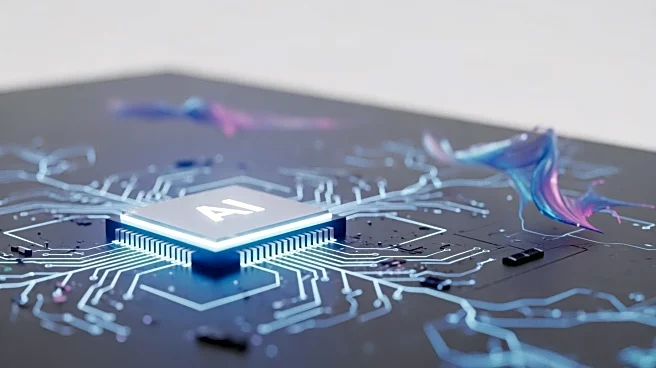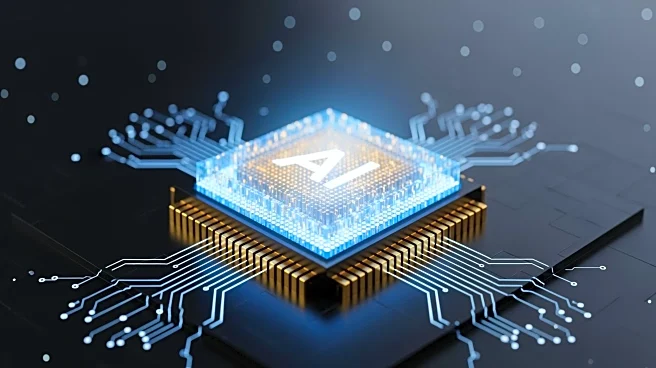What's Happening?
Glen Schofield, a prominent figure in the video game industry, has highlighted the potential of artificial intelligence (AI) to address significant challenges faced by the sector. Speaking at Gamescom Asia, Schofield emphasized the need for the industry to embrace
AI technologies to enhance efficiency and creativity. Despite concerns from some developers about AI's impact, Schofield believes AI can improve processes without replacing human creativity. He urged industry leaders to train developers in AI tools, noting that many developers already incorporate AI into their workflows. Schofield acknowledged potential short-term disruptions in the job market but predicted long-term job creation similar to past technological advancements.
Why It's Important?
The integration of AI in the video game industry could lead to transformative changes in how games are developed and marketed. By enhancing efficiency, AI has the potential to reduce development time and costs, benefiting companies and consumers alike. However, the adoption of AI also raises concerns about job displacement and the erosion of human creativity. As AI tools become more prevalent, industry stakeholders must navigate these challenges to ensure a balanced approach that leverages AI's benefits while safeguarding the role of human input. The industry's response to AI could set precedents for other sectors facing similar technological shifts.
What's Next?
As AI continues to be integrated into the video game industry, stakeholders may need to address ethical and practical concerns, such as intellectual property rights and energy consumption. Companies might explore ways to mitigate potential negative impacts while maximizing AI's advantages. The industry's approach to AI could influence broader discussions on technology adoption across various sectors. Additionally, ongoing developments in AI technology may lead to new opportunities and challenges, prompting further adaptation and innovation within the industry.
Beyond the Headlines
The adoption of AI in the video game industry could have broader implications for creativity and innovation. As AI tools become more sophisticated, they may enable new forms of storytelling and gameplay experiences, potentially reshaping the industry's landscape. However, this shift also raises questions about the balance between human and machine-generated content, and how this dynamic will evolve over time. The industry's approach to AI could influence cultural perceptions of technology and creativity, impacting how society views the role of AI in artistic and creative endeavors.















